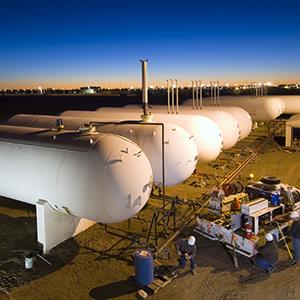Fracking leaves property values tapped out
The oil and gas extraction process can be lucrative for homeowners, but it can also jeopardize their mortgages and ability to sell their homes.
By Jason Notte Wed 7:13 AM
 Depending on where you stand and what's beneath the ground you're standing on, fracking is either paving the way toward American energy independence or dooming it to methane-addled water and man-made tremors.
Depending on where you stand and what's beneath the ground you're standing on, fracking is either paving the way toward American energy independence or dooming it to methane-addled water and man-made tremors.
The one certainty about fracking, however, is that it doesn't exactly do wonders for property values.
The one certainty about fracking, however, is that it doesn't exactly do wonders for property values.
As reported by The Atlantic, mortgage lenders are becoming more cautious about approving loans for properties near fracking sites. Lawyers, real estate agents, public officials and environmentalists have noted that banks and federal agencies are revisiting their lending policies to account for the potential impact of drilling on property values. In some cases they are refusing to finance property with or even near drilling activity.
That's particularly problematic, considering that many home insurance policies do not cover residential properties with a gas lease or gas well, though all mortgage companies require home insurance from their borrowers. Part of the problem stems from uncertainty over the effects of the process itself.
The article goes on to say:
The article goes on to say:
The Federal Housing Administration's lending guidelines prohibit the financing of homes within 300 feet of a property with an active or planned drilling site. Mortgage lenders Fannie Mae and Freddie Mac also prohibit property owners from signing a gas lease or keeping hazardous materials on their property. Doing so puts their mortgages in "technical default."
Read the entire article: http://money.msn.com/now/post--fracking-leaves-property-values-tapped-out

